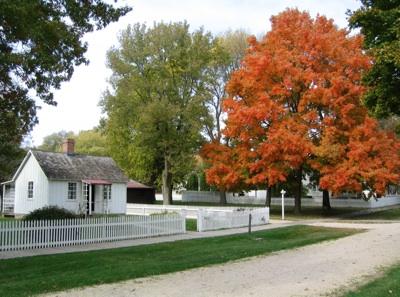The boyhood home of a future U.S. president wouldn't normally be associated with buried treasure, but there must be something intriguing about the Herbert Hoover National Historic Site.
In recent weeks three individuals have been cited by park rangers for using metal detectors to search the grounds of the site for significant artifacts.
According to a park release, two "relic hunters" were apprehended a week ago with metal detectors and shovels on the not-quite-200-acre historic site in West Branch, Iowa.
The two unidentified men, both from Iowa, were cited for possessing and using metal detectors on federal lands. They had their detectors impounded until they paid fines and underwent a "background check to determine if either individual had a previous history of such violations."
No artifacts were taken from the park, according to the report, which did not specify what the men were looking for.
In a recent case in Washington State, according to Park Service officials, a man pled guilty to "unauthorized removal of artifacts from Lake Roosevelt National Recreation Area after a warrant to search his residence over 3,000 artifacts seized as evidence. A federal judge sentenced him to three years’ probation and ordered him to pay a $2,000 fine plus an additional $2,000 in restitution. The judge also ordered him to serve 30 days in home detention and banned him from the recreation area for three years."
Back at the Herbert Hoover National Historic Site, officials said a third individual, who was not associated with the first two, was cited this past Saturday for searching the grounds with a metal detector.
What might these three treasure hunters have been searching for at the historic site? It's hard to say. A cultural landscape report on the property notes that the future president's grandfather, Eli Hoover, bought the land in 1852 to plant an orchard and construct a blacksmith shop. Much of the surrounding land was agricultural.










Add comment